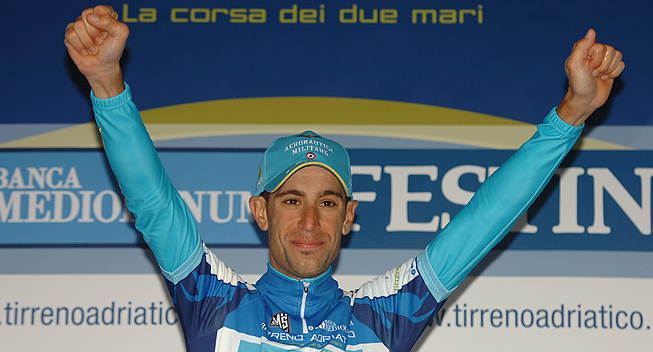In 2014, Vincenzo Nibali is expected to be Team Sky's main rival in the Tour de France and the Italian faces a difficult task when he goes up against the well-drilled machine. The British team is known for its ability to use power numbers as a guide in races but Nibali refuses that a power meter can be used to determine the tactics of a race.
In 2012 and 2013, Team Sky has been dominant when it comes to stage racing. With riders like Bradley Wiggins, Chris Froome and Richie Porte, the British team has won several WorldTour stage races in the past two seasons and at times they have appeared to be almost unbeatable.
The team is known for its scientific approach to racing where the use of power meters play a crucial role. On the big mountain stages, the team often line out a train on the front of the peloton and set a tempo that they know they can keep for a long time, using their power numbers as the main guide in the process.
In the 2014 Tour de France, their main rival is expected to be Vincenzo Nibali who is of a completely different nature. While Froome is often seen looking at his power meter, making sure that he doesn't go too far into the red zone, his Italian rival is riding much more on pure instinct and spontaneous feelings.
Nibali knows how to beat the Sky machine. At this year's Tirreno-Adriatico, Froome appeared to have locked up the overall win and only had to survive the penultimate stage in the Apennines and the final time trial. A gutsy move by Nibali on a brutally steep climb in horrendous weather conditions was, however, enough to break the Sky machine one of the most epic days of racing in 2013.
That stage proves that you cannot always control a race with power numbers. Nibali is convinced that tactics and instinct is much more important than the scientific numbers.
“SRM meters help to train and prepare for races but in the races, those numbers don’t mean anything,” he told VeloNews. “They are useful when you ride like Sky does — when a team puts five riders on the front, going at their maximum, one following the other and following his SRM.
“You know what happens in races? You’re going well, feeling well and you go maybe 10 or 20 watts over what you’d normally produce," he added. "You are not thinking about it and you just do more than what you think you’re capable of doing. You’re running off of adrenaline and concentration. Your head is in another world."
After the 2010 Vuelta win, Nibali's trainer Paolo Slongo told Velonews that Nibali could produce 390 watts. La Gazzetta dello Sport claimed during the Vuelta that Nibali was climbing at 430 watts when he was unable to match Chris Horner's acceleration. On the Jafferau climb in the Giro, Nibali is said to have averaged 340 watts over those brutal seven kilometres and finished 2nd in the same time as stage winner Mauro Santambrogio.
Nibali will kick off the season that should be crowned with a race-winning ride in July, in January at the Tour de San Luis.
| Georgia CATTERICK 27 years | today |
| Malcolm LANGE 51 years | today |
| Kevyn ISTA 40 years | today |
| Edward WALSH 28 years | today |
| Evgeniy KRIVOSHEEV 36 years | today |
© CyclingQuotes.com









